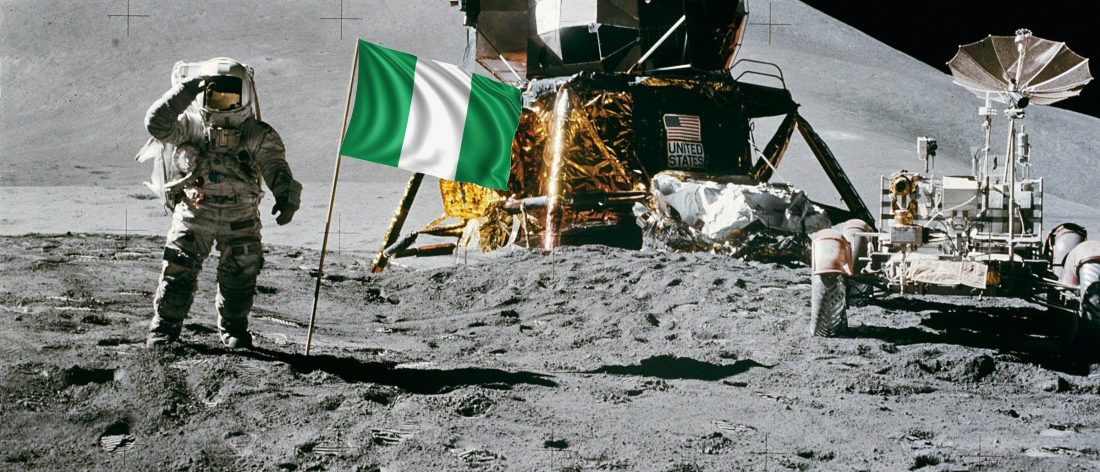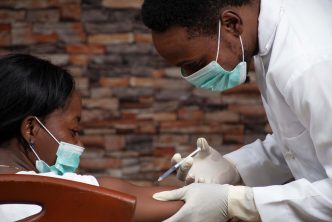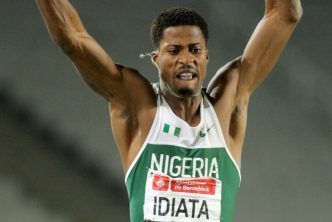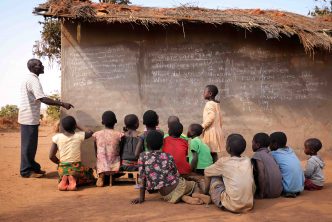Nextier Advisory
This a transcript of the conversation with His Excellency Donald Duke on the “Development Discourse with Patrick Okigbo III” on August 30,2020.
Donald Duke was the Governor of Cross River State in Nigeria from May 29, 1999, to May 29, 2007. He was recently a Presidential candidate for the Social Democratic Party in Nigeria’s 2019 elections. He has been lauded for his contributions to urban renewal, tourism, agriculture, development, and governance in Cross River state.
Donald received his LLB degree from Ahmadu Bello University in Zaria, where he was active in the Students’ Union Government. He obtained his B.L from the Nigerian Law school, Lagos, and has an LLM in Business Law and Admiralty from the University of Pennsylvania. Before getting involved in public service, Donald was the Chief Executive of Hegeds International Limited, the family’s shipping business. He was Chairman of Allied Merchants and Brokers Limited, a sole Africa franchisee for US-based Uncle Ben’s Rice.
His foray into public service began in 1991 with his appointment as a member of the Board of Directors of Voice of Nigeria. This appointment was quickly followed by another appointment in 1992 when Governor Clement Ebri appointed him as a member of the Cross River State Executive Council and Commissioner for Finance, Budget, and Planning. Following this appointment, he was a member of the National Economic Intelligence Committee and, subsequently, the National Economic Council.
Preamble
Nigeria is a nation of potential untapped potential for greatness. The state of the country paints a disheartening picture of what could be and what is. While boasting of the highest population in Africa, 40.1 percent of Nigerians are living in poverty.[1] The country has a youth bulge but according to the National Bureau of Statistics (2020), the youth unemployment rate in the country is at 34.9 percent, up from 29.7 percent in 2018.[2] The presence of vast natural resources not only brings in revenue but acts as a breeding ground for conflict, environmental degradation and corruption. On paper, Nigeria’s core assets (natural and human resources) should position the country as a leader in development but there is a disconnect in reality and the observed outcomes. The cause of this paradoxical situation has long been a topic of debate.
The country Is culturally rich and ethnically diverse, but national unity Is lacking. Measured by different languages and self-identification, there are about 250 – 350 ethnic groups in Nigeria. These differences have, however, permeated through to the fabric of the society to create a sense of disunity. Now, with ethnicity ranking high above nationality, there is ample opportunity for the political elite in the country to manipulate these divisions to further their personal interests. The result is a fragmented nation that can hardly come together to achieve the common goal of development.
Nigeria faces the mutually reinforcing challenges of corruption and failures in leadership. Corruption is a multidimensional issue, occurring between the elite, in their struggle for state assets, and also amongst the non-elite all through society. In the 2019 corruption perceptions index, the country ranked 146th out of the 180 countries surveyed worldwide and came in 32nd of the 49 countries surveyed in the sub-Saharan African region. Against this backdrop, we have a crop of leaders who lack the competence or the political will to drive the country forward. Instead, political office has deteriorated over time into an avenue for self-aggrandisement and enrichment.
Deficits in leadership have resulted in poor delivery in government. These deficits are especially manifested in the inconsistencies and gaps in policy implementation. The pursuance of self-interests and lack of a collective vision among leaders has resulted in poorly-thought-out and subsequently failed policies, duplicated programmes and a plethora of abandoned policies following changes in government. Discontinuity and poor cohesion of policies hinder the country from reaching its full capability.
Nigerians are becoming increasingly apathetic. With a population exceeding 200 million people, there were 82.3 million registered voters, as collated by the Independent National Electoral Commission, and only 35{1c02100822988c48c7b0a484ab61ac3d7f398d67c2f66594d88b2db33072d9d9} of them voted in the past election. A survey conducted by the Pew Research Centre, between June 25 and July 30, 2018, showed that 57 percent of Nigerian adults believe that “no matter who wins an election, things do not change very much for people in Nigeria”. This hopelessness about the present makes way for uncertainty about the future. The abysmal quality of education, insecurity, high rates of unemployment, fragile economy, and many others are discouraging to the youth who should be the future of the country.
His Excellency Donald Duke was the guest on “Development Discourse with Patrick Okigbo III” on August 30, 2020. The conversation explored a broad range of issues around how to conceive a vision for development for a state, how to translate the vision into action and the challenges for succession planning to ensure continuity and success of programmes. A summarized version of the conversation follows.
Donald Duke started by stating the importance of all members of society being involved in the politics and overall development of the nation. It is not for a specific group of people. All stakeholders in a society have to get involved, more so for the younger ones who have a longer time to stay around.
There is no one way to get involved. He discussed his experience getting involved in the politics of Cross River state. When running for elective office, an individual must have something to give. People have to start gradually and get some work done in order to know how society works.
This is the bane of the third tier of governance in Nigeria, which is the most important tier of governance. It’s populated by folks who have absolutely nothing to offer and who see it as a money-making venture. Nigeria needs mature people to run the 774 local governments in the country. This is not folks who see politics as an occupation, but as a vocation that they want to give their best to.
Isn’t that the dilemma that young people face in Nigeria? It’s either you try to build a career – which is not easy – or you get into politics. How do you advise they balance that out because if you choose to pursue a career, it might take you five years, ten years before you figure out yourself? Or should they go straight into politics not having any experience? How do you balance that out?
Balancing this out is not cut and dry. Each person has to identify where they stand. How much experience do they have? It’s a bit more than passion because passion has to be guided by something. He expressed admiration for the passion of youth, but stated that passion is like a fuel which must be based on an engine that you can control.
While identifying as a beneficiary of young people in government, Donald Duke pointed out that he had a background before going into it. While everyone might not have the same background, they must have a work ethic. Most young people going into politics don’t really know what is expected of them. They see the glamour but don’t deliver. That’s why mentoring is absolutely important. Don’t throw them down the drain, bring them up because they will inherit these systems, whether you like it, sooner or later. They must be prepared for it.
A vision if it remains your vision. It has to be embraced by the public service and ultimately, the people. For the public service, which is quite stunted in their thinking, it is quite difficult. However, they’re the ones that take the decisions, so you have to appeal and explain to them where you’re going, the rationale for going in that direction and why you want their support.
The civil service is very pliable. They are not fools. If they believe that you’re going in the right direction, ultimately, they’ll come aboard. The next thing is the public. The public have a certain attitude and perception of government; Government is a place, where if you have a friend, you go make some money there. Delivery is grammar; that’s what they called it.
Once society takes ownership of a project, they put pressure on the government to deliver. The unfortunate thing in our national life is, it’s always government policy. It has not cascaded down to becoming a national policy, a people’s policy. The people have not bought into it. Once you get the people to buy into it, governance becomes a piece of cake.
My core question is, why couldn’t the governors in the region come together to create a regional development plan? I know they tried to do it with the BRACED commission, why didn’t that work? What I’m pushing for is, how do we get to a stage where regions begin to take ownership of their development, regions and then states?
Donald Duke explained that not long after they handed over, a completely new class of governors came in. They previously had a fairly integrated team. They were friends who saw the need to integrate and also discussed true federalism. They next class of governors were not as passionate and with each class, it gets even more fragmented.
The south-south is a unique region. The south-west can have Amotekun, because they speak one language. The south-east can have whatever they want to, because they speak one language. He stated that in the south-south, during meetings, they speak in English, maybe pidgin English at best. The only commonality in the south-south is being a minority, one and, two, oil is constantly a topic of discussion. The south-south can only get leverage by coming together.
A vision cannot be styled as too big in a country of 200 million people that styles itself as the giant of Africa. On the other hand, the United Arab Emirates, a puny country, is talking about going to another planet. What is running right now is a mediocre system. Nigeria is a fifth the population of the entire continent, the largest black nation in the world. Nelson Mandela himself said Africa is going nowhere until Nigeria gets it right. The thinking has not even started. This country is very petty in our sight.
Donald Duke expressed that he has come out a few times and that’s him saying he’s available. The elites are the biggest problem. They look for a leader they can manipulate. COVID has taught us what happens when you don’t get your health facilities in place. At the airports, you see a plethora of private jets lying out there. All those things are not needed. In Nigeria, we don’t collect more than 20 percent of the tax that we ought to.
Since 1980, Nigeria’s budget has not changed in real terms. Shagari budgeted 25 billion dollars for the four years he was president. Till this day, the budget is still 25 billion dollars, whatever you call it, 10 trillion naira, by the time it is converted, it still comes back to 25 billion dollars. So, for forty years, the budget has been stagnant, but the population has almost quadrupled over the period. Nigeria is a nation in regression, and the elites have to come together. It’s not a question of whether it’s north or south. It’s all nice to know that anyone can be president in the country. Still, it shouldn’t be based primarily on primordial sentiments and manipulative tendencies.
By 2023, we should see the last of them in politics. But is there a pathway for a new crop of politicians or leaders to emerge? How do we get people who are development-focused, civic-minded and imbued with ideas of how to get big things done in government? How do they navigate into a position to do it? Is there a plan to deliver Nigeria that looks like what you guys implemented in Cross River back in 1999?
Donald Duke stated that he knew of no such plan. It will require the elites to form an army of people who would say enough and push the country to realise it’s full potential. The critical mass is not there. Nigeria has hit the bottom, but there’s a basement and the country is still cascading down the basement.
The politicking is going to start in about 2021 going into 2022. People would start coming together. However, there will be blocks. There’ll be several blocks in APC and PDP because, let’s face it, there are only two real political parties in this country. There’ll be the group asking north or south. That’s where we have to settle that first. Once that has been settled, then within the south, are we going east, are we going west, are we going south-south or are we just going to look at the south as a block? Whatever is decided, the block that is not producing will determine who in the south and they will be looking for someone they feel they can work with. That’s politics, if they are not producing the president, then they want someone whom they feel they can work with.
For whoever comes in, there are three primary things that must be address immediately. There’s the talk about restructuring and this is important. That’s one. Even as important as that is, Nigeria also needs judicial reform. The constitution must be restructured to allow Nigerians the liberty to express themselves and, of course, the tax base. If individuals have a right to life, they have a right to earn a living. So, the government must ensure that every citizen of the country has a job.
Excellent. Thank you, Donald, for making time to join me on this conversation. Unfortunately, we’ve run out of time, but I enjoyed the one hour we’ve spent with you, and I wish you the very best in everything.
Thank you, Patrick, and I want to encourage what you’re doing. I watched your film on the Nigeria Civil War and the events that led to it. I admire what you’ve been doing. I wish you the best. Keep it up.
The full transcript is available below for download.







